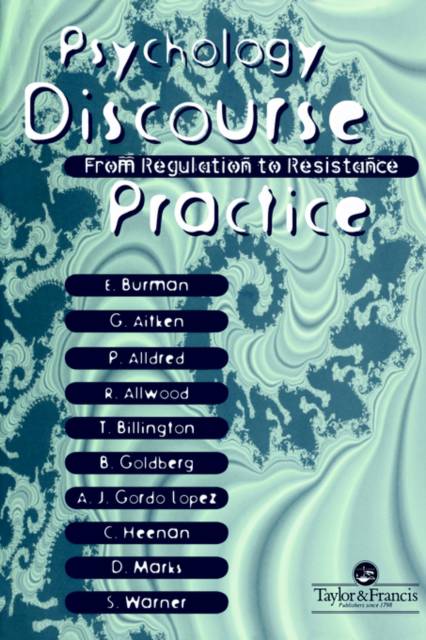
- Afhalen na 1 uur in een winkel met voorraad
- In januari gratis thuislevering in België
- Ruim aanbod met 7 miljoen producten
- Afhalen na 1 uur in een winkel met voorraad
- In januari gratis thuislevering in België
- Ruim aanbod met 7 miljoen producten
Psychology, Discourse and Social Practice
From Regulation to Resistance
Gill Aitken, Pam Alldred, Robin Allwood, Tom Billington, Erica Burman, Brenda Goldberg, Colleen Heenan, Angel Juan, Gordo Lopez, Debs Mark, Sam WarnerOmschrijving
What damage does psychology do to people's lives, and what can we do about it? How do we recognise and support resistance? Written by expert practitioners-researchers, this co-authored book explores how psychology legislates on normality and then uses its "expert" knowledge to turn social marginalisation into pathology.
Chapters address a range of cultural and institutional arenas in which inequalities structured around categories of gender, "race", class and sexuality are reproduced by psychological practices: from self-help books to special hospitals, from school exclusions to Gender Identity Clinics, from mothering magazines to mental health services. But far from just documenting the damage, this book identifies the ways in which both professionals and users of services can act to counter psychology's abuses. As practical intervention as well as theoretical critique, Psychology, Discourse and Social Practice offers tangible examples of how change can be effected. This book will be of interest to advanced undergraduates and postgraduates in psychology, health, education and welfare disciplines. It is also relevant to social workers and education and health professionals, as well as professional psychologists.
Specificaties
Betrokkenen
- Auteur(s):
- Uitgeverij:
Inhoud
- Aantal bladzijden:
- 208
- Taal:
- Engels
Eigenschappen
- Productcode (EAN):
- 9780748405046
- Verschijningsdatum:
- 4/09/1996
- Uitvoering:
- Paperback
- Formaat:
- Trade paperback (VS)
- Afmetingen:
- 156 mm x 234 mm
- Gewicht:
- 344 g

Alleen bij Standaard Boekhandel
Beoordelingen
We publiceren alleen reviews die voldoen aan de voorwaarden voor reviews. Bekijk onze voorwaarden voor reviews.









